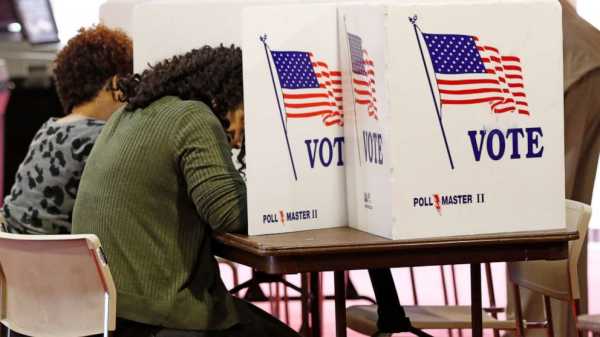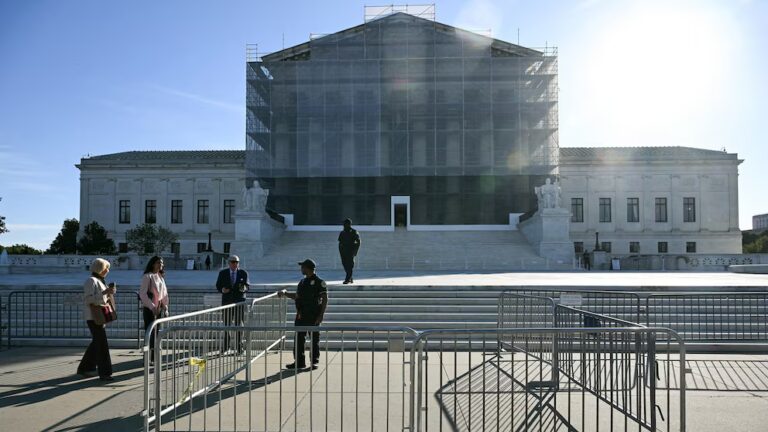Mississippi's lifetime voting ban for people with disqualifying felony convictions has been struck down in a new decision from the United States Court of Appeals for the Fifth Circuit.
The court's 2-1 decision will restore the right to vote for tens of thousands of Mississippians, according to the plaintiff's council Simpson Thacher & Bartlett LLP.
The court ruled Thursday in the case of Hopkins v. Hosemann that by banning former offenders "from the body politic forever" they will be punished "beyond the term their culpability requires," according to the decision.
The court argued that the ban, – Section 241 of Article XII in the Mississippi Constitution – "serves no protective function to society" and is thus "a cruel and unusual punishment."

In this Nov. 24, 2018, file photo, voters wait in line to cast their absentee ballots in Jackson, Miss.Jonathan Bachman/Reuters, FILE
The policy was derived from the Mississippi 1890 constitution where white lawmakers tried to disenfranchise Black people who they felt were more susceptible to commit certain crimes that would lead to lifetime voting bans.
According to a 2020 study by the criminal justice research center Sentencing Project, 10.55% of adults in Mississippi – 235,152 people – were unable to vote due to felony convictions.
The same study found that almost 15.96% of Black Mississippians – 130,501 – were unable to vote under such restrictions.
MORE: Man serving 400-year prison sentence exonerated after new probe finds wrongful conviction
"The right to vote is the cornerstone of a functioning democracy," said attorney Jon Youngwood in a statement. "This is a major victory for Mississippians who have completed their sentences and deserve to participate fully in our political process."

In this March 10, 2020, file photo, voters work on their ballots in the kiosks in Jackson, Miss.Rogelio V. Solis/AP, FILE
Ahmed Soussi, staff attorney for the Southern Poverty Law Center called the ban a "lifetime disenfranchisement scheme" that disproportionately impacts Black Mississippians.
The court ruled that the ban is unconstitutional and instructed the Mississippi Secretary of State against enforcing the provision.
Secretary Michael Watson did not immediately respond to ABC News' request for comment.
"Mississippi denies this precious right to a large class of its citizens, automatically, mechanically, and with no thought given to whether it is proportionate as punishment for an amorphous and partial list of crimes," the court stated in the decision.
Sourse: abcnews.go.com





